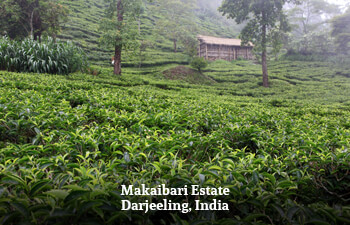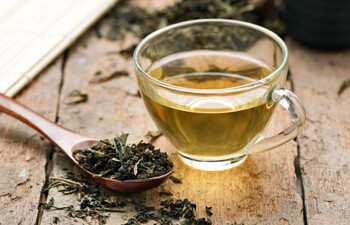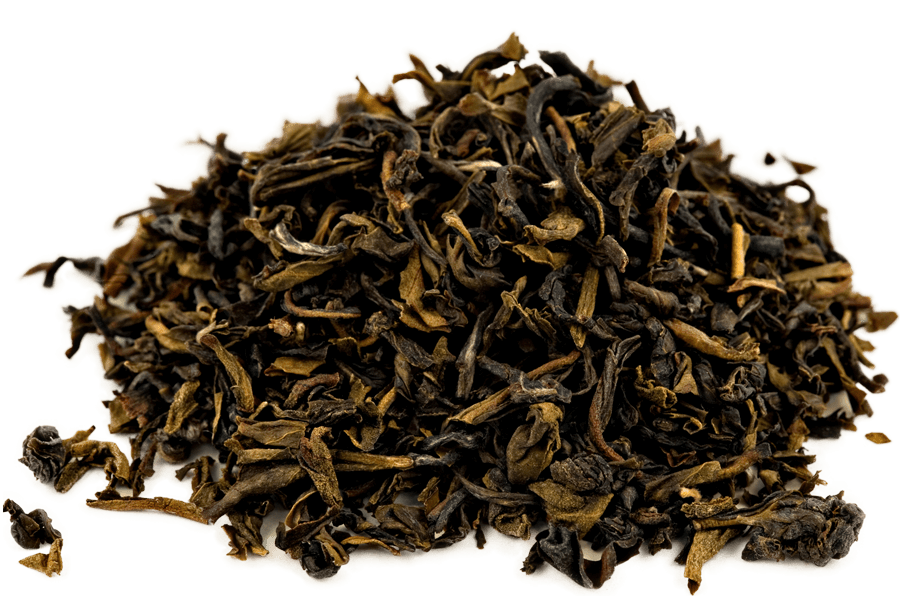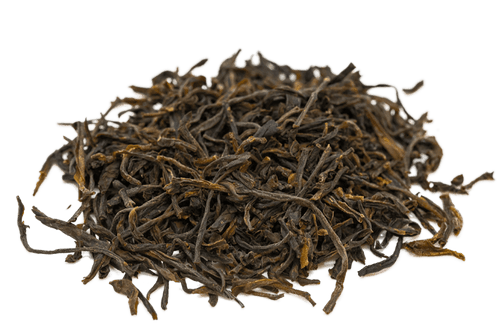Organic Makaibari Estate Green Tea

This Fair Trade Certified organic green tea is another example of the wonderful offerings coming out of the Makaibari Estate in India. Biodynamically farmed in India's Darjeeling district, this organic loose leaf tea exhibits many of the same qualities as the black teas of this region, but with an unoxidized leaf. The varying leaf colors (ranging from green to brown to white) produce an easy-to-drink cup. This organic Indian tea also exhibits slight lemony, vegetal and earthy qualities akin to other Darjeeling teas. Established in 1859, Markaibari is the oldest estate in Darjeeling, where a strong commitment to sustainable farming prevails.
Ingredients: organic and Fair Trade Certified Indian green tea
Origin: Makaibari Estate, Darjeeling, India

Located in eastern India, Darjeeling is nestled at the foothills of the Himalayas and tucked between Bhutan and Nepal. It is one of the most famous regions in the world for tea production, and has a long history of tea cultivation dating back to the early 1800s. Black teas are the most traditional types of tea from this area, but more recently white, green and oolong teas have been manufactured. Darjeeling’s highland subtropical climate and elevation (6000 feet above sea level) make it ideal for growing tea. Makaibari Tea Estate was founded in 1859, and is the oldest and steepest estate in Darjeeling. Makaibari is a biodynamic and organic certified tea garden and follows a form of “integrated forest management.” They also use permaculture in many of their practices. Certified Fair Trade in 1993, Makaibari has used their premiums to provide stipends for University studies, microfinance programs, education investments and health training, among many other initiatives.
Read our field notes from our visit to Makaibari!
Steeping Instructions

At Arbor Teas, we believe tea should be brewed to suit your personal taste. We’re happy to make recommendations to get you started, but don’t hesitate to experiment! When brewing your tea, your main considerations are tea quantity, water temperature, and steeping time. We recommend green and white teas to be steeped for 2 to 3 minutes in water heated to not-quite-boiling, just as bubbles begin to form on the bottom of the pan (approximately 170 to 180 degrees F). For the best flavor, use fresh water whenever possible. Try not to steep your tea longer than necessary, as you’ll extract undesirable bitterness from the leaves. If you want a stronger brew, don’t steep longer, just use more tea. And don’t forget to re-steep your tea leaves to get the most out of your leaf!
Looking for more info? Check out our How-To Guides and Eco-Brewing Tips!
Staff Perspectives
 Aubrey
Aubrey
"With the addition of our Makaibari Estate Green Tea, we are proud to offer five teas from the Makaibari Estate! First flush black, 2nd flush black, oolong and Silver Tips white tea from the Makaibari estate."
Health Benefits

Like all true tea, green tea offers many potential health benefits. Research has found that tea (Camellia sinensis) can have many positive effects on human health, including improved cardiovascular function, cancer risk reduction, improved immune function, improved oral health, and help with weight management. Tea is also full of polyphenols, which are a class of antioxidant that help your body maintain homeostasis and balance your stress levels.
Green tea specifically is known for its array of health benefits, which have been supported by a growing number of studies. Green tea research has demonstrated that it may be an effective anticancer agent for breast cancer, lung cancer, kidney cancer and prostate cancer, among others. Studies have shown a link between green tea and weight loss, and the ability to modulate energy metabolism, aid in body fat regulation, and possibly promote preferential loss in abdominal fat. Research has also shown that green tea may increase performance for short term memory tasks, as well as being increasing potency of antibiotics. Other peer-reviewed studies link green tea to healthy skin, help with lowering cholesterol, and regulating diabetes. It’s important to keep in mind that many of these studies monitor subjects who drink several cups of green tea per day.
For more information about the health benefits of green tea, and for direct sources of the above information, check out our Tea Health Benefits page!
Please note: the information above is for educational purposes only and has not been evaluated by the Food and Drug Administration. This information is not intended to diagnose, treat, cure, or prevent any disease.









